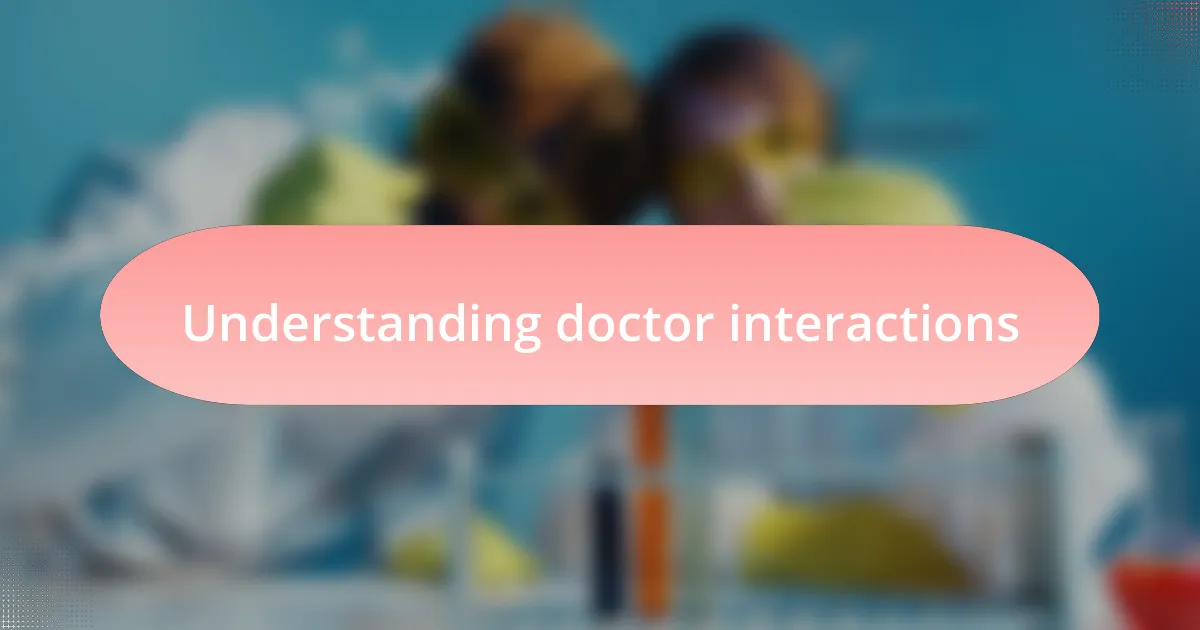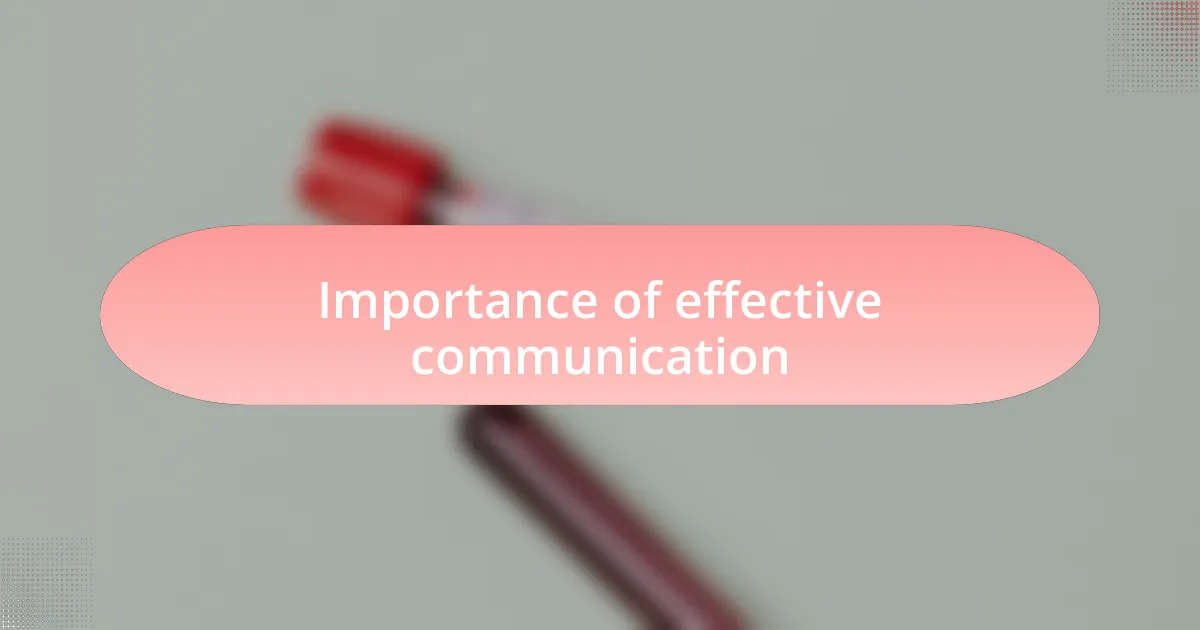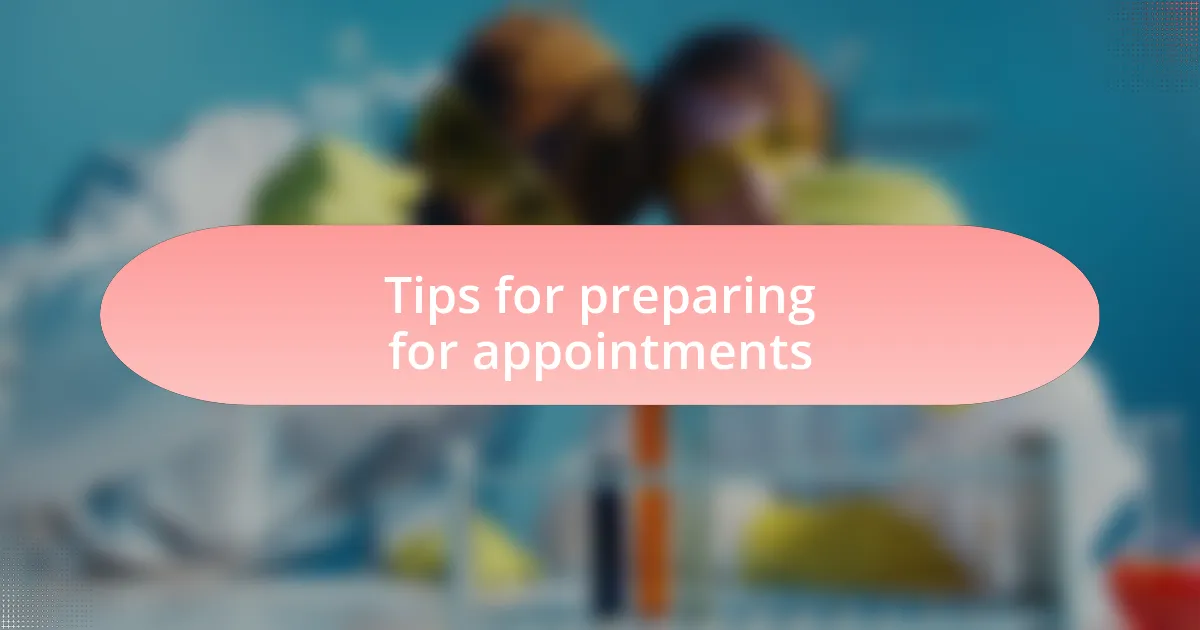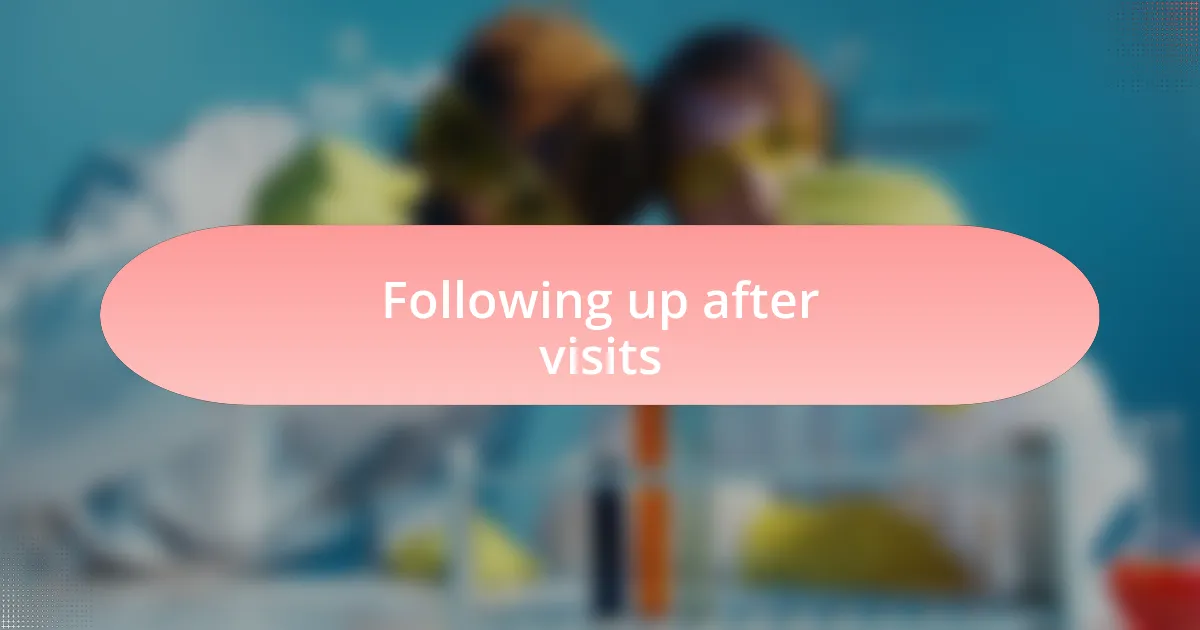Key takeaways:
- Building trust and effective communication with doctors enhances patient understanding and engagement in their health care.
- Preparing for appointments by listing symptoms and questions fosters clearer discussions and personalized care.
- Following up with healthcare providers post-appointment ensures clarity and reinforces commitment to health management.
- Establishing a long-term relationship with a doctor through open dialogue and regular check-ins promotes proactive health management.

Understanding doctor interactions
Understanding doctor interactions involves more than just exchanging information; it’s about building trust and communication. I remember a time when I felt overwhelmed during a consultation. I struggled to voice my concerns, but the doctor’s genuine listening made all the difference. Have you ever felt the same way, where just having someone truly hear you shifts the entire dynamic?
During these interactions, it’s crucial to ask questions and clarify uncertainties. I once hesitated to ask about a medication’s side effects, fearing I might sound silly. In hindsight, I realized that those questions could have led to a more comprehensive understanding of my treatment. It’s empowering to remember that our health is a shared responsibility between ourselves and our doctors.
Moreover, non-verbal communication can speak volumes in a doctor’s office. I’ve noticed that a simple smile or nod from a physician can create a welcoming atmosphere. Have you felt the warmth of a personal touch in a clinical setting? That small gesture made me feel valued and assured that my health concerns were acknowledged. A compassionate approach can truly enhance the effectiveness of these vital interactions.

Importance of effective communication
Effective communication in a medical setting can significantly impact patient outcomes. One time, I visited a specialist who took the time to explain my diagnosis in a way that was easy to grasp. It made me wonder—how many patients leave a doctor’s office frustrated because they didn’t fully understand what was discussed? Clarity opens the door to better health decisions.
I’ve often realized that the tone with which information is delivered can shape our understanding and emotions about a diagnosis. During a particularly worrying visit, my doctor used a calm and reassuring voice that eased my anxiety. This experience reminds me that the manner of communication can be just as important as the words themselves. Have you ever felt your worries lessen simply because of how someone spoke to you?
When patients communicate effectively, it fosters a more collaborative relationship with their healthcare providers. I recall a time when I brought my own research to an appointment, and my doctor was open to discussing it. This exchange not only enhanced my trust in her expertise but also empowered me to take an active role in my health. Isn’t that the ideal relationship we should strive for with those who care for us?

Tips for preparing for appointments
When preparing for a doctor’s appointment, I find it invaluable to jot down any symptoms or questions I have ahead of time. On one occasion, I walked into an appointment with a list, and it transformed our discussion. Instead of forgetting key points, I could present my concerns clearly, which helped my doctor provide a more tailored approach to my care. Have you ever felt rushed during an appointment and left wishing you had communicated more?
Additionally, researching your condition can boost your confidence and facilitate a more meaningful dialogue with your healthcare provider. I remember studying up on a condition I thought I had, and when I mentioned it to my doctor, we delved deep into potential causes and treatments. It felt empowering to discuss my findings, and it made for a more productive consultation. How much better could our conversations be if we come prepared with some knowledge?
Lastly, bringing a friend or family member along can add a support layer to your appointment. I’ve noticed that when I take someone with me, I feel less anxious and more open to discussing difficult topics. They can also help remember details and ask questions I might not think of in the moment. Isn’t it comforting to have someone there, helping you navigate such an important part of your healthcare journey?

Questions to ask your doctor
When it comes to questions to ask your doctor, focusing on your diagnosis and treatment options is essential. I once went into an appointment unsure about a new medication prescribed to me. Instead of just nodding along, I asked about its side effects and how it would interact with my other medications. It turned a vague prescription into a well-informed decision, and I walked out feeling empowered rather than confused.
Moreover, don’t hesitate to inquire about the reasoning behind a particular treatment plan. The first time I faced a major decision about my healthcare, I was overwhelmed. By asking my doctor to explain the benefits and alternatives, I gained clarity. It made it much easier to trust the path we chose together. Shouldn’t we all aim for transparency in our healthcare journey?
Lastly, consider asking about lifestyle changes that could enhance your health. During one visit, I brought up my struggles with stress management. My doctor suggested several practical strategies, which made a real difference in my daily life. Isn’t it motivating to know that small adjustments can lead to significant improvements? Engaging your doctor in such discussions not only personalizes your care but can also inspire positive changes.

How to discuss sensitive topics
When discussing sensitive topics with your doctor, it’s important to create a comfortable atmosphere. I remember a time when I had to discuss mental health issues. I set the stage by expressing my hesitation right away, letting the doctor know that I felt vulnerable. Opening with this honesty helped establish trust, making the conversation easier to navigate.
Another strategy is to write down your thoughts and feelings before the appointment. I often find that jotting down my concerns helps me articulate them better when I’m in the office. It’s a bit like having a roadmap for the conversation, ensuring that I cover everything important. Have you ever experienced that moment where you leave the appointment only to realize you forgot to ask a crucial question?
Finally, don’t underestimate the power of active listening. During one visit, my physician shared a personal experience related to my health issue, which made me feel more connected. By engaging actively in the conversation, asking follow-up questions, and even sharing my own experiences, I found that our interaction grew richer and more meaningful. Isn’t it fascinating how mutual vulnerability can transform a simple medical appointment into a genuine dialogue?

Following up after visits
Following up after a visit with your doctor can feel daunting, but it’s an essential part of maintaining your health. After my last appointment, I realized I hadn’t fully understood the medication instructions. Instead of just hoping it all made sense, I reached out to the office for clarification. I remember feeling a bit nervous, but the quick response not only eased my worries but also reinforced my commitment to my health.
Sometimes, we think that once the appointment ends, that’s the final word on our health. However, I’ve learned that follow-up is often when important insights come to light. Recently, I had a question about my lab results that came to me days after the visit. I called in, and the doctor explained things in such a way that shifted my entire perspective on my treatment. Have you ever had that moment where a simple follow-up created an unexpected breakthrough in your understanding?
I also make it a point to note any next steps that were discussed during the appointment. After my visit, I created a checklist of what to do next, which included scheduling my follow-up tests. Reflecting on this later, I felt a sense of accomplishment by taking charge of my health. Keeping the communication lines open not only empowers you but can also strengthen the relationship with your healthcare provider. It’s all about partnership, isn’t it?

Building a long-term relationship
Building a long-term relationship with your doctor goes beyond just routine visits. I remember a time when I took the initiative to share my personal health journey in-depth during an appointment. That openness made my doctor see me not just as a patient, but as a partner in my own care, which ultimately fostered a deeper trust between us. How often do we truly share our experiences to create that connection?
As my visits progressed, I began to appreciate the importance of regular check-ins, even when I wasn’t feeling under the weather. I once made an appointment specifically to discuss my lifestyle choices and how they might be impacting my health. This proactive step not only allowed for meaningful dialogue but also positioned my doctor to offer tailored advice that felt relevant and personal. Have you ever realized that your health story could be a crucial part of the treatment plan?
Investing time in these relationships can make a remarkable difference. I often think back to the invaluable advice my doctor offered when I started asking questions about preventative care. It turned into a collaborative exploration that enhanced my overall well-being. Isn’t it remarkable how an ongoing relationship can result in proactive health management rather than reactive treatments?